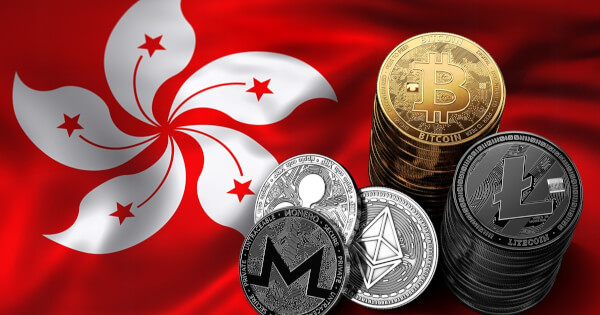Eastern Asia has seen its cryptocurrency market dynamics shift significantly, with a notable decline in crypto activity over recent years, primarily attributed to China’s restrictive stance. However, a wind of change may be blowing from Hong Kong, as the region experiences a surge in crypto-related initiatives and regulatory friendliness, igniting speculations regarding China’s evolving digital asset outlook, according to Chainalysis.
The Eastern Asia Crypto Landscape: An Overview
Eastern Asia, accounting for 8.8% of the global cryptocurrency activity from July 2022 to June 2023, has historically been a significant player in the crypto arena, largely driven by China’s previously bustling crypto trading and mining sectors. Despite the drop in activity, the region still holds a considerable share in the global crypto market, albeit less driven by institutional activity compared to larger markets. The region has displayed a higher inclination towards Decentralized Finance (DeFi) than similarly sized markets like MENA and Latin America.
Hong Kong: The Rising Crypto Hub
Hong Kong has emerged as a potential harbinger of crypto rejuvenation in the region, especially with its burgeoning status as a crypto hub. With an impressive $64.0 billion in crypto received between July 2022 and June 2023, Hong Kong’s activity isn’t far behind China’s $86.4 billion, a noteworthy feat given the vast population difference. The city’s lively Over-The-Counter (OTC) market, facilitating large, private transfers for institutional investors and high net worth individuals, has been a major driver of this crypto influx.
Institutional and Retail Dynamics
The crypto scene in Eastern Asia portrays a mixed bag of institutional and retail dynamics across different countries. For instance, South Korea’s crypto market appears to be the least institutional-driven due to stringent local regulations, whereas Japan aligns closely with global averages concerning retail versus institutional transaction breakdown. Unlike South Korea, Hong Kong sees a considerable share of its transaction volume from large institutional transactions, a characteristic that sets it apart from other countries in the region.
Crypto Platform Preferences: A Regional Perspective
A closer look at the most-used crypto platform types unveils intriguing regional trends. While Japan reflects a balanced activity between centralized exchanges and DeFi protocols, South Korea leans heavily towards centralized exchanges. The aftermath of TerraLuna’s misfortune and the subsequent regulatory revisions could have bolstered South Koreans’ trust in centralized exchanges. In contrast, China and Hong Kong exhibit unique crypto platform dynamics, with a significant amount of activity presumed to occur through OTCs or grey market peer-to-peer channels.
Decoding Hong Kong’s Crypto Surge: Implications for China
The speculation surrounding China’s warming stance towards cryptocurrency is further fueled by recent developments in Hong Kong. The Special Administrative Region has not only been fostering a conducive environment for crypto trading but also witnessed state-owned Chinese entities launching crypto-centric investment ventures. The burgeoning crypto market in Hong Kong, coupled with China’s indirect support towards Hong Kong’s digital asset initiatives, might hint at an exploratory approach by the Chinese government towards understanding digital assets better, without having to alter mainland policies drastically.
Hong Kong’s Progressive Steps Towards Web3 Adoption
Cyberport, a digital community in Hong Kong, emphasized the power of Web3 in the entertainment sector during a three-day annual event, showcasing local enterprises leveraging Web3 technology.
HKD 50 million was allocated to Cyberport to foster a thriving Web3 ecosystem, attracting businesses and talent, and organizing related educational and promotional events.
Hong Kong began tokenizing green bonds as part of its green finance initiatives, showcasing financial innovation.
The establishment of the “Task Force on Promoting Web3 Development” on June 30th, 2023, led by Financial Secretary Paul Chan, aims to promote the sustainable and responsible development of Web3 in Hong Kong.
Hong Kong’s crypto uptrend and regulatory receptiveness could potentially be harbingers of China’s cautious yet evolving stance towards digital assets. While the exact implications for China remain veiled, Hong Kong’s thriving crypto market is undeniably reshaping the regional crypto narrative, possibly laying down a framework for broader digital asset acceptance in the near future.








